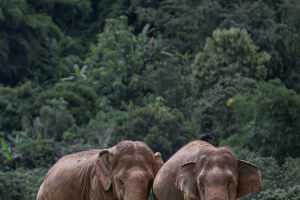
Recently, the New Zealand government released a draft plan to put a price on agricultural emissions. And these so-called agricultural emissions are the gases emitted by cattle and sheep burping.
The proposal would make New Zealand, a major agricultural exporter, the first country to make farmers pay for livestock emissions.
New Zealand has only about 5 million people but has nearly 10 million cattle and 26 million sheep, roughly speaking, the total number of cattle plus sheep, is nearly seven times its population. According to research, a cow burping and farting every day will release 300-500 liters of methane gas.
Ninety to 95 percent of this is expelled through the cow's mouth, while the other 5 to 10 percent is released in the form of feces and farts.
Methane is considered a potent greenhouse gas, and an equivalent amount of methane creates a greenhouse effect that is thought to be tens of times greater than that of carbon dioxide.
In addition to natural sources such as swamps, animal agriculture is considered an important source of methane in the atmosphere. When ruminants such as cattle and sheep digest forage, methane may be produced by the flora in their intestines and emitted through "burping".
Nearly half of New Zealand's greenhouse gas emissions come from the methane burped by cattle and sheep when they ruminate. Therefore, New Zealand plans to start levying a tax on greenhouse gas emissions from cattle and sheep in 2025 to encourage farmers to adjust their feed formulations to reduce greenhouse gas emissions. Of course, the bill will also develop incentives, such as planting trees on farms can offset a certain amount of tax collection.


